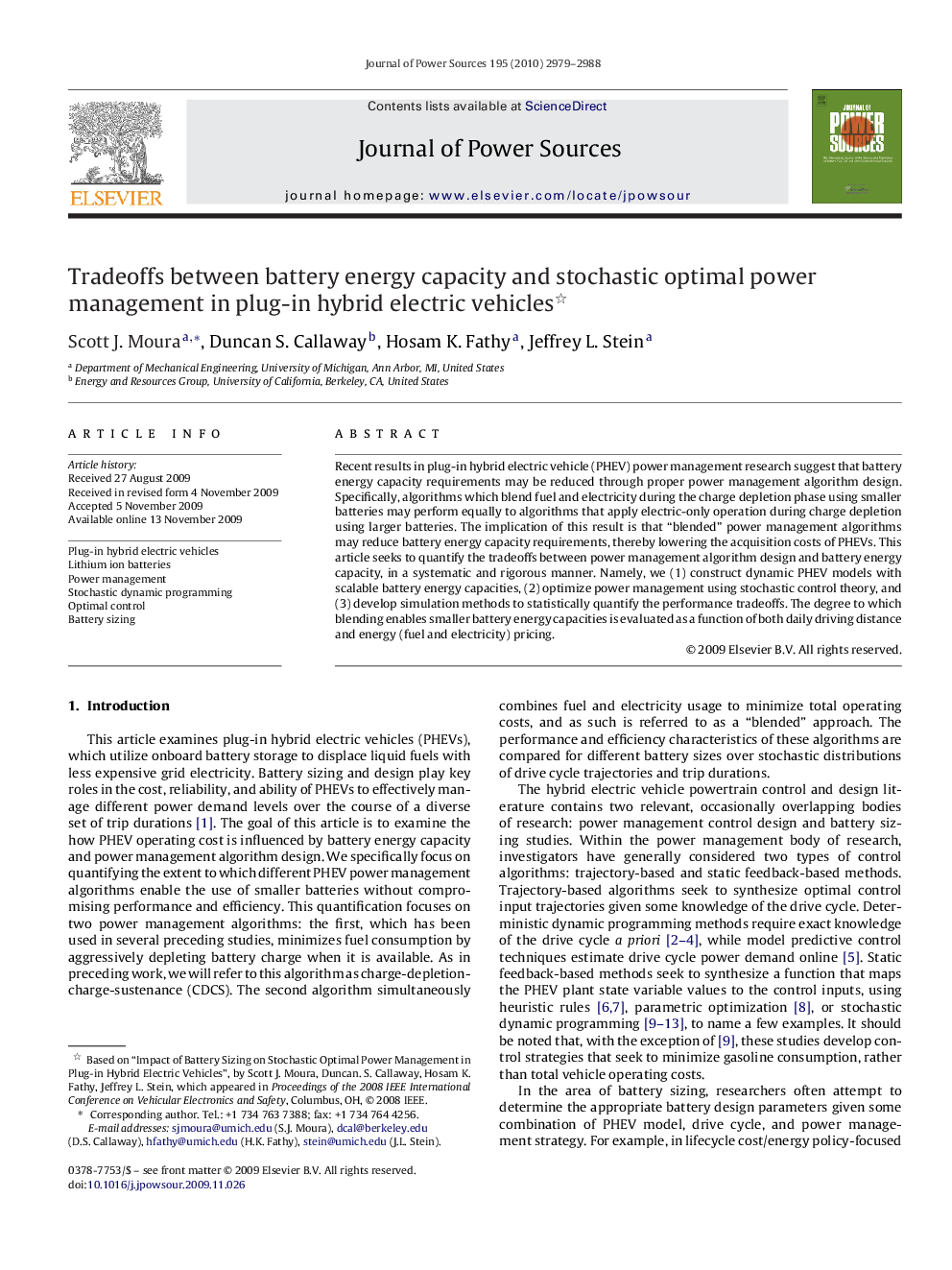| Article ID | Journal | Published Year | Pages | File Type |
|---|---|---|---|---|
| 1285066 | Journal of Power Sources | 2010 | 10 Pages |
Recent results in plug-in hybrid electric vehicle (PHEV) power management research suggest that battery energy capacity requirements may be reduced through proper power management algorithm design. Specifically, algorithms which blend fuel and electricity during the charge depletion phase using smaller batteries may perform equally to algorithms that apply electric-only operation during charge depletion using larger batteries. The implication of this result is that “blended” power management algorithms may reduce battery energy capacity requirements, thereby lowering the acquisition costs of PHEVs. This article seeks to quantify the tradeoffs between power management algorithm design and battery energy capacity, in a systematic and rigorous manner. Namely, we (1) construct dynamic PHEV models with scalable battery energy capacities, (2) optimize power management using stochastic control theory, and (3) develop simulation methods to statistically quantify the performance tradeoffs. The degree to which blending enables smaller battery energy capacities is evaluated as a function of both daily driving distance and energy (fuel and electricity) pricing.
